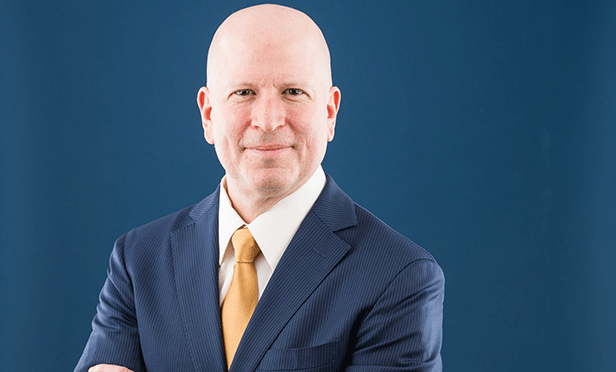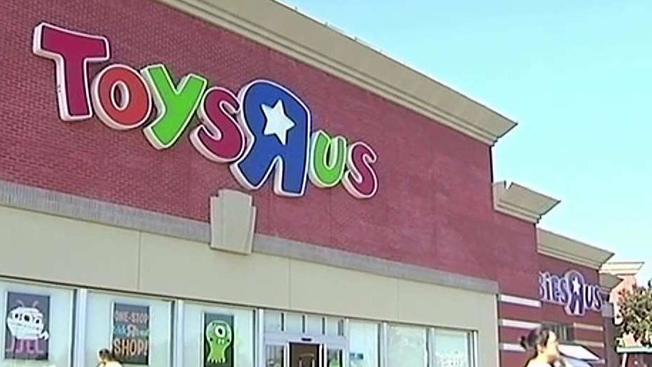
As more loan portfolios make their way to the Federal Deposit Insurance Corp., the agency is finding innovative ways to work with the private sector. One of its most notable efforts is the structured-
loan sale program, in which the agency sells a stake-usually 20% to 40%-of a partnership-type structure to an investor who then participates in the upside. To date, there have been 15 such deals, including the $1.2- billion sale last October of a 40% interest in a portfolio of assets previously owned by Corus Bank. And late
last month, the FDIC awarded an unnamed investor $2 billion of commercial real estate loan sources from 21 failed banks.
But increasingly, investors are looking for ways to create opportunity outside of the structured loan sale. "The challenge with the FDIC program is pricing and volume, ' says New York City-based Guy Langford, who heads up the national real estate group at Deloitte. "People are not entirely comfortable with the pricing, and with a large number of institutions on the FDIC's watch list, it's difficult to move product quickly."
While the number of problem banks increased just 10% during the first quarter to 775 (compared to the
27% jump of Q4), Langford observes that the volume of transactions is not high enough to move these assets. "People were looking at this as RTC 2.0, where they would get assets
for cents on the dollar and move them very quickly, but that just isn't happening, ' he says, and that has soured many market participants.
"As soon as you start putting these assets into an auction, it's going to significantly increase the pricing. Also, many people learned from the last cycle that you don't want to sell these assets if you believe there is value down the road. So there's no more shooting fish in a barrel."
While private investors grapple with creative ways of combing for distressed loan pools, a logical next step is for acquiring banks to pair up with private equity firms, with the former bidding for the bank and the latter entering into a contract for the loan portfolio. "Acquiring banks are in the market to buy performing-and, to a certain extent, nonperforming -loan portfolios, but they are not looking to purchase substantially nonperforming portfolios, ' says Thomas Galli, a shareholder at Washington, DC based Greenberg Traurig LLP, whose clients were awarded the two most recent structured transaction deals. But private investors, already eager to scoop up these assets, can now buy 100% of the portfolio from the bank as opposed to the 40% doled out by the FDIC.
If orchestrated properly, Galli says, this could effectively bump up the bank bid. "The challenge right now is that there is often only two to three weeks to do due diligence, so you're essentially bidding blindly on the failed institution and all of its assets, ' he observes. Not to mention, in selling assets of failed banks, the FDIC generally cannot offer the same level of detail or historical data on the assets being sold as an existing bank could because the institutional knowledge tied to the assets left when the bank closed. The result is more unanswered questions, and this has led to a certain amount of discounting among bidders.
But as Galli sees it, since private equity firms tend to have more of a stomach for large distressed portfolios, they will value those assets higher. "Through this teaming arrangement, they have positioned themselves with a heftier price, increasing their chance of being awarded the bid." he notes. While transactions of this kind are scarce-Galli says he knows of only one, which is not public record-his 200-strong firm has been ramping up its workload in recent weeks
and fielding calls from interested investors. "Given the short period of time allowed to compose a contract, you really need to have a network of banks, consultants and other service providers and private equity firms so that you can go through your database and pair up appropriate players." says Galli, who adds that his firm has established a balanced contract that represents both the bank and the private investor.
Still, there are some sticking points here. "The theory is sound, and you will find an increasing number of transactions that offer a private market solution." says Langford.
But, he cautions, there are still those unanswered questions, from the fair value implications with respect to the bank's regulatory capital requirement to the tax implications of acquiring a pool of loans and then selling them off. For his part, Langford expects to see a string of different deals. "It is not going to be one size fits all." he says.
Indeed, avoiding the FDIC program leaves the investor wide open to a number of creative options, such as teaming with a healthy bank to purchase a sick bank in its entirety. One can imagine the legwork of such a deal, including aligning oneself to become an eligible bidder for these failed banks, bank officials have been reluctant to simply open the door to wealthy investors who lack commercial banking experience.
"The quickest way to do this is to buy into an existing bank." says New York City-based Christine McGuinness, a partner at Schiff Hardin LLP. In this case, an investor would buy into a portion of the bank's charter. "As long as that bank is well-capitalized and well-managed, the FDIC will allow you to bid on failed institutions." she says. The other option is for investor groups to form a shelf charter, overseen by a banking executive, and then raise capital through that vehicle.
The upside for foundering banks is an immediate infusion of capital, while private equity firms gain access to additional assets. What's more, the government guarantees a portion of the assets, which clearly works to minimize risk. The FDIC currently guarantees up to 80% of the losses, but according to George Mark, a partner at Grant Thornton LLP and head of the New York City Metro area banking group, the government has faced some serious criticism for giving away the store. And, in fact, there is now talk that the agency could adjust that structure by requiring bidders to divulge their loss-sharing arrangement. In other words, says McGuinness, "If you
can be more competitive and show confidence in your assets by asking for only a 70% guarantee, you are a more attractive bidder."
These acquisitions certainly are not for the faint of heart. Private equity investors holding more than 9.9% of an institution are subject to control restrictions and must file with the bank's regulator, and those owning at least 25% must become a bank holding company. And operating a newly acquired bank, in any respect, means taking into account everything from employee retention to lease assumptions, says McGuinness, who believes that investors will establish funds in the $200-million- to-$500-million range specifically to acquire troubled banks rather than pick them up piecemeal. Langford adds that there will be variations on full bank transactions, namely, they will start to occur before institutions fall into the hands of the FDIC. "Once the agency has hold, you're grabbing deposits, taking the loan pools and basically pulling the bank apart." he says.
Another strategy that's gaining ground is effectively a replication of the FDIC's structured transaction model in the private sector in which a troubled bank drops a distressed loan portfolio into an LLC and then sells a membership interest in that LLC to a private investor who serves as the asset manager. The goal of this good bank-bad bank structure is to clean up the balance sheet of the good bank by transferring to the bad bank assets that are illiquid or nonperforming or result in write downs and deplete capital.
"This strategy is still a bit premature, but it will take off in another three to six months." says Galli. But he cautions that there is some risk involved here. "The troubled bank has to contribute the loans to a newly created LLC and it cannot realize losses on the portfolio like it would with a true sale." he states. "The benefit to the bank is that there is no write-down and the money from the private investor stabilizes its balance sheet."
But since this is not a true sale, if the bank subsequently gets taken over by the FDIC, the agency will likely consolidate the balance sheets of both the failed bank and the LLC. And if that happens, the private investor is in bad shape. Nevertheless, Langford maintains that this is a solid strategy, despite regulatory hurdles. "It isn't going to work in all circumstances, but there will be transactions with the right level of equity from both a private participant and a healthy bank and also a smaller write-down on assets that won't punish the regulatory capital."
But with all of the cash piled on the sidelines and a plethora of possible transactions, why haven't these strategies taken off yet? Galli believes it comes down to concern on the part of investors. "Clearly, there is some fear that troubled banks will turn into failed banks." he says, "but in the past four months there has been a meaningful uptick of private investment in troubled banks, including those that have received cease-and-desist orders from the FDIC." This, he believes, indicates that investors have confidence that management will right the ship and, ultimately, prevent the bank from being taken over."As more equity gets pumped directly into troubled banks, private equity will become increasingly comfortable with the prospect of doing a transaction directly with the bank." Galli concludes.
GlobeSt.com News Hub is your link to relevant real estate and business stories from other local, regional and national publications.
© Touchpoint Markets, All Rights Reserved. Request academic re-use from www.copyright.com. All other uses, submit a request to [email protected]. For more inforrmation visit Asset & Logo Licensing.






